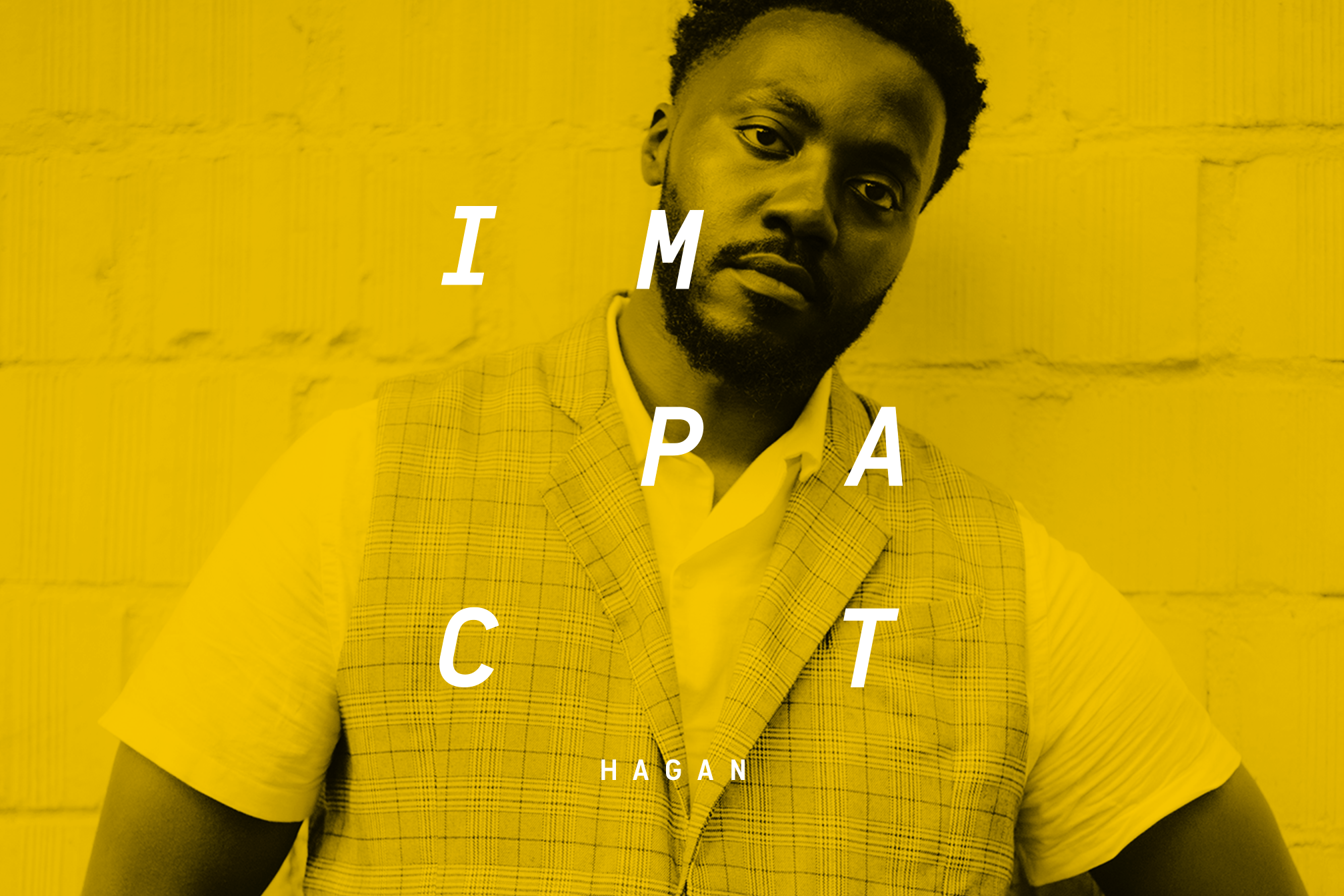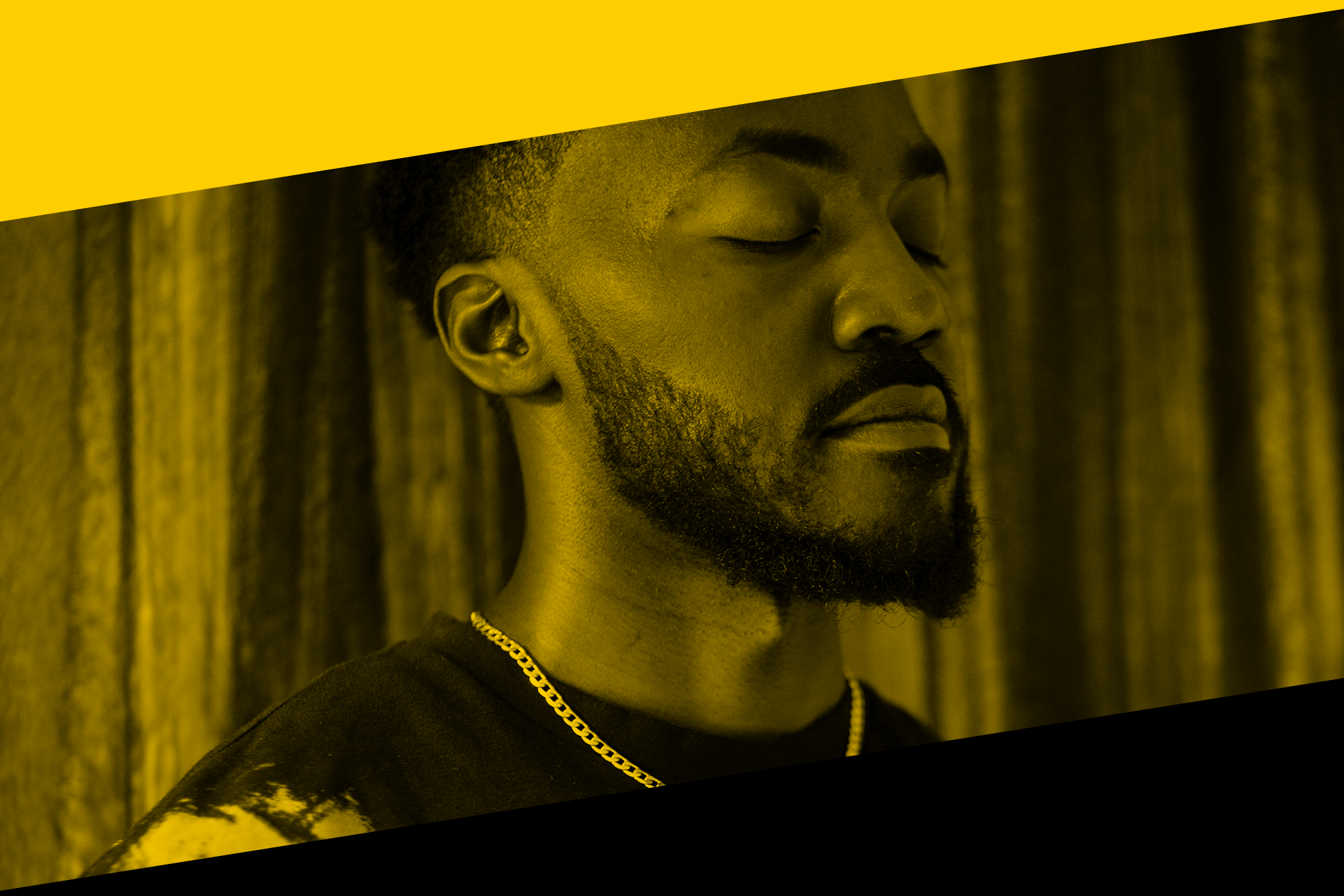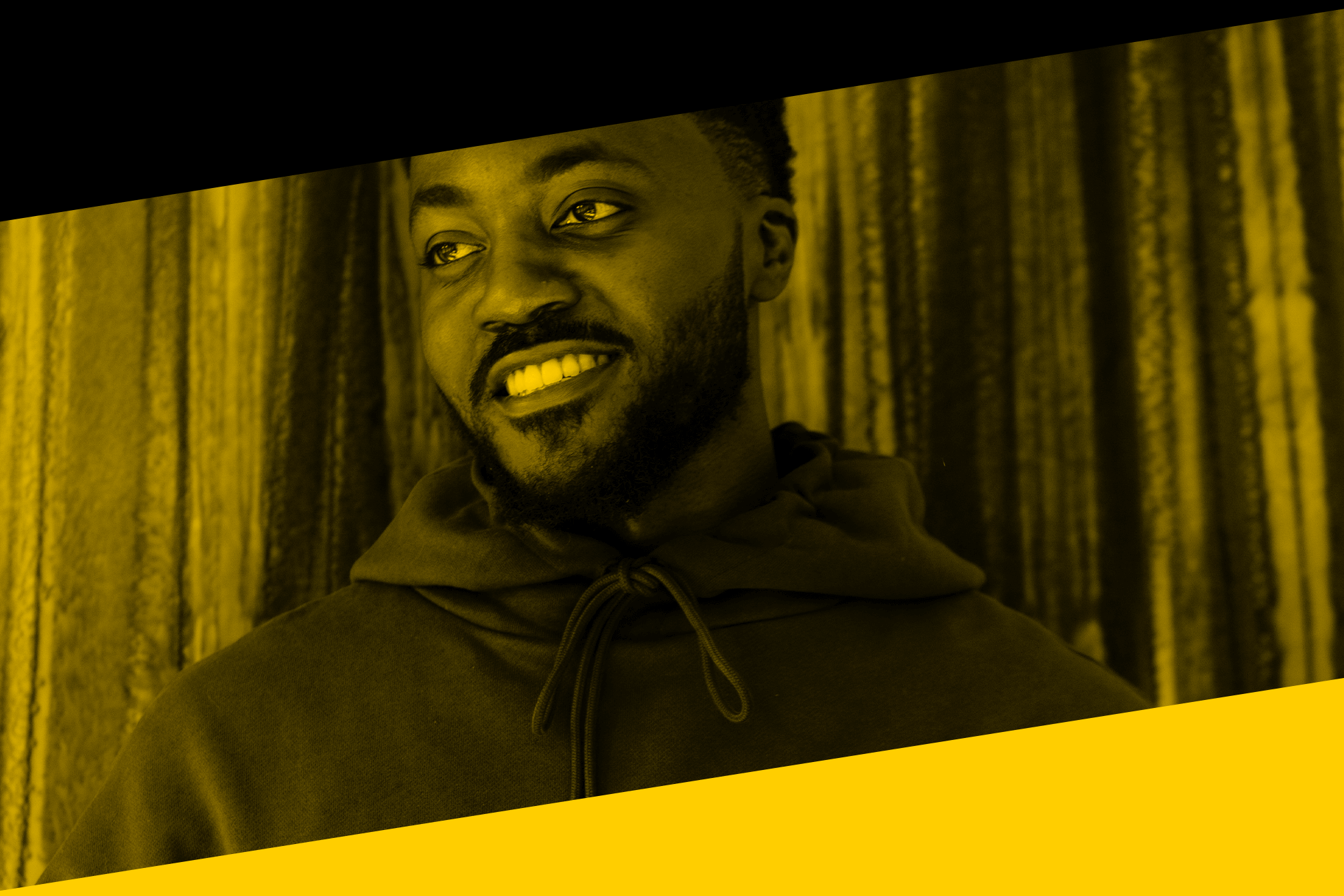 Music
Music
Raw emotion: Hagan’s gritty low-end bass is a personal homage to loved ones
The 'Textures' producer talks embodying Ghanian groove, challenging himself and delivers an eclectic hour-long mix exploring his journey so far
Considering the deep, unique manner in which Hagan approaches music — his sonic journey began in the most customary of circumstances. While studying at university almost a decade ago, the South London-born artist, real name Brendan Kwabena Gyimah Hagan Opoku-Ware, was approached by a DJ friend looking for fresh music to play at gigs. Knowing that Hagan had started dabbling around in music production “as a bit of a joke”, he tasked him with creating a track.
Having first fallen in love with music after his mother had bought him a set of drums as a child, and playing percussion at his local church — Hagan downloaded Fruity Loops Studio, making beats in his spare time in between lectures. “It was always the drums and the rhythm section that moved me,” Hagan says. “So I started making UK funky, because of the similarities with some of the African rhythms that I’d heard in church and at home. One thing led to another, and I am still making music today.”
Read this next: Why didn't UK funky break the mainstream?
Those first tracks went off a treat, and with the DJs of London's Ghanaian community delighting dancefloors with his productions — it wasn't long before Hagan found himself embedded in the burgeoning post-dubstep, 130 BPM bass scene. Now years later, Hagan’s sound has developed – still retaining much of that UK bass grit, but employing a myriad of tempos, genres, and energies.
In October Hagan released his debut studio album to well-deserved critical acclaim. ‘Textures’, a layered 11-tracker filled with sounds, influences and collaborators from his London and his Ghanaian roots. Having come a long way from his early production days sat in halls fiddling with Fruity Loops, he’s recorded an hour-long mix that celebrates his decade-long journey – with reworks from his own discography, alongside a multitude of influences from the African diaspora.
We caught up with him to chat about the mix, his musical inspirations and getting his personality to shine through the music he makes and plays.

Are there any other musicians you see as being particularly formative to your musical and DJing style?
Seeing Sango quite recently at Electric Brixton in 2018 gave me a lot of inspiration. [When he plays] it’s more than just a DJ set sometimes – he was playing with the stems of his own music and he was giving a show of his own productions. Kaytranada would do the same. Same with Black Coffee, the way he would be a master on the mixer, playing with all the different effects – giving a bit more impact to all the drops and the transitions. That was something I wanted to make sure, that when I’m DJing, I’m bringing some of that emotion, trying to make the transitions as interesting as possible.
I used to love watching Black Motion as well. They are a duo in South Africa, and they do more than just a DJ set, they incorporate the live instruments they play – they play percussion and drums as well – and with the type of music that I make, there’s room for that type of scope. I’ve had the idea of learning from what they are doing and bring it into my own sessions and shows when the time comes.
Read this next: One dance: Ghana's Asa Baako is the festival set on uniting African music lovers
How would you say your style has evolved since your time making UK funky and 130BPM bass music?
That bassy style, the 130 stuff is still there and part of my production DNA. That’s what I still listen to, a lot of the heavy low-end sounds. But I’m playing with a lot more BPMs now, not just the 125-130BPM range – I’m taking it down a little bit, allowing a bit more of a groove to be heard. But I’m also bringing down to that BPM some of the foundations of the bass music as well, like the basslines are still gritty, but they are much slower. I’m also working with musicians a lot, so it brings more of a melodic side to the music. When you’re working with a musician the arrangement has to change to suit both the instrumental and the artist. I guess I’m trying to add some more ammo to the whole toolbox – playing with different BPMs and working with artists broadens the scope for production.
What about your DJing style? Would you say that’s changed?
Yeah, I’m playing a wider range of BPMs now and I like to build things up more. I like to create different moods now – it doesn’t need to be upbeat and fast straight away. But If there are sets where that needs to happen then I definitely [will], depending on who you’re after and the type of crowd you’re playing for. I do enjoy building it up and creating a vibe as the night goes on.
Congratulations on the album by the way, what would you say were your biggest inspirations for it?
I really respect those who create a sound for themselves. Those producers where when you hear the music, you can hear straight away that this is their sound. I kind of wanted to make sure that when you hear ‘Textures’ you really associate this sound with Hagan. But also my friends and family – they have supported my music for years. I never really say to them, but they are always in the back of my mind when good things happen, but also when I’m in some kind of rut. They provide a lot of inspiration for me. I’ve been inspired by Ghana as well, where I’m from – there are a ton of producers from there. I wanted to represent a sound that could be linked to Ghana but isn’t really the sound that everyone associates with it, like the afrobeats sound. There are a lot of producers who do that, for example Øbed and Juls. They are creating sounds that are different from what’s normally expected.

You recorded the album between London and Accra right?
That’s right.
Was that a deliberate decision, or a result of coincidence?
It was definitely deliberate. In my opinion a lot of the grooves, and rhythms and patterns that you hear can only be done when you’re out there. You just feel the rawness on the tapes. I wanted to embody the Ghanaian groove in my music, but to match it up with the influences I had from UK music. What better way to do it than actually be in Ghana? And then come back to all these great musical events in the UK.
What were the most memorable moments from recording the album?
Probably my sessions with Meron T and Ayeisha Raquel. They were big learning curves for me, I had not done many sessions before with artists — so they were teaching me how to conduct a session in a way that I hadn’t done before. They were patient with me as well. They understood how this was such an important album for me, and I was learning on the job. But also talking about life in between recording takes, talking about our music, our aspirations and our goals – serious conversations that I will always remember. It was super enjoyable.
There seem to be a lot of different things in your mix and your album that make up who Hagan is as an artist and person. What’s your relationship between who you are and your music?
It’s very personal to me. I thought for people to understand the themes and topics I’m talking about [on the album], it would be good to have those little anecdotes and voice notes that you hear. For example my grandma is very important to me, you hear her on the track ‘Pray for Me’ at the end, and she’s praying on my life and my family’s life – giving us her thoughts and her prayers.
Another one from Griffit Vigo, you hear his voice at the end of ‘Welcome to Ghana’, and he’s basically telling me something that I’ve been thinking as a producer for a very long time which is “be yourself” – do not try and fit genre boxes, just produce what comes naturally to you. There was a time I was sending him ideas and he kept on telling me: “Hagan, don’t send me ideas about what sound good for me – just send me what sounds good for you.”
The last track, which is called ‘Outro (Baffour’s Son)' – Baffour was my dad, who unfortunately passed away last year, and the way that album ends there’s barely any rhythm – just melody and synths and it. It reminded me of how calm and forgiving my dad could be in certain situations. He always had patience.
What’s next for Hagan?
I want to try and refine the sound I’ve introduced in the album, but also bring the album to life. I want to see how I can recreate it in a live environment – try and get musicians and artists I’ve featured so we can bring the album to an audience, so we can experience the album not just through streaming platforms, but actually face-to-face.
Read this next: Listen to a playlist of gqom classics curated by Griffit Vigo
And finally, what was the idea behind the mix you’ve created for us?
This is the first mix where I’m playing tracks outside of the singles [from the album]. So it was created with the idea of introducing the album tracks as part of my regular set rotation. The mix also replicates the journey I attempt to take people on [with my music]. I’ve tried to create an intro that’s welcoming. As you listen further the mood proceeds to darken and the basslines are heavier. You also hear different versions of the album tracks such as acapellas or instrumentals.
Isaac Muk is Mixmag's Digital Intern, follow him on Twitter
Tracklist:
Ezra Collective 'Siesta' (feat. Emeli Sandé)
Hagan 'Pray For Me' (feat Ayeisha Raquel) [No Drums Mix]
Mojvki 'Travellers' (feat Hagan)
ZVRI 'Waves' (Original Mix)
Scratchclart & Scotti Dee & DJ Polo 'Banx Skanx'
Hagan 'LOGAN'
Sango 'Né'
Mr Joe 'Air Force'
Hagan 'Sise Ntweni' (ft. Aymos)
Omagoqa 'Gqom 808'
Hagan 'Talking Drum'
Griffit Vigo 'Activated Gqom'
Leon Vynehall 'Sugar Slip (The Lick)' (Hagan Remix)
Jackson Brainwave 'Furahini (Beats)'
Funky Qla & DJ Lag 'Lift Club'
Hagan 'Pull Up' (ft. Griffit Vigo)
Hagan x Sango 'Telha Instrumental'
Hagan 'Telha' (ft. Luedji Luna & Sango)
Gvijin 'Vapormax'
Bakongo 'Koopa'
Hagan 'Ghana Step VIP'


